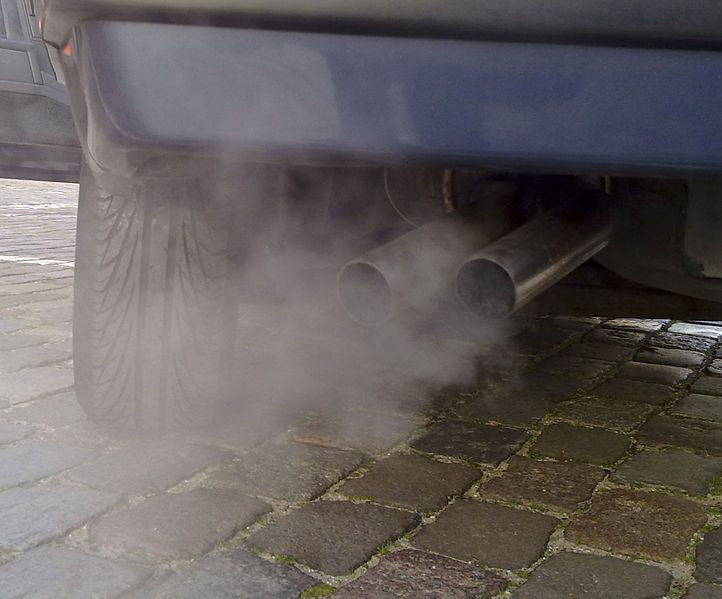Breathing Auto Emissions Turns Good Cholesterol Bad, Study Finds

Breathing exhaust from motor vehicles can change the composition of the cardiovascular protective qualities in high-density lipoprotein (HDL) cholesterol, causing it to contribute to clogged arteries, a new study has found.
The team of researchers, which included scientists from UCLA and other institutions, found that inhaling emissions not only changed the HDL from "good" to "bad," but it also activated other components of oxidation, the early cell and tissue damage that leads to inflammation and hardening of the arteries, according to a press release.
They made this discovery using three groups of mice. The first group was exposed to vehicle emissions for a few hours a day, several days a week for two weeks, and then filtered air for one week. The second was exposed to two weeks of emissions with no filtered air, and the third group was exposed to only clean air for two weeks. The mice that were exposed to two weeks of emissions showed oxidative damage in the blood and liver that could not be reversed with the subsequent week of filtered air.
The altered HDL cholesterol could play a role in the damaging process, the researchers speculate.
"This is the first study showing that air pollutants promote the development of dysfunctional, pro-oxidative HDL cholesterol and the activation of an internal oxidation pathway, which may be one of the mechanisms in how air pollution can exacerbate clogged arteries that lead to heart disease and stroke," Dr. Jesus Araujo, associate professor of medicine, director of environmental cardiology at the David Geffen School of Medicine at UCLA, and senior author of the study, said in the release.
Blood and tissue specimens were analyzed to see if the protective antioxidant and anti-inflammatory properties of HDL were still intact. They found that the positive properties were significantly altered after exposure, and that they had a decreased ability to protect against the oxidation and inflammation induced by low-density lipoprotein (LDL) cholesterol, or bad cholesterol, than the mice that were only exposed to filtered air. In fact, there was a twofold to threefold increase of additional oxidation products in the blood of the mice exposed to emissions, as well as activation of oxidation pathways in the liver, according to researchers.
Emission particles, such as those from motor vehicles are among many types of pollutants in urban settings. The particles are coated in chemicals that are sensitive to free radicals, which have been known to cause oxidation. The mice were exposed to whole diesel exhaust at a particulate mass concentration similar to what mine workers are usually exposed to.
This information is interesting because according to CBS News and Kentucky Educational Television, four of the fourteen states with the highest rate of heart disease are also states with the highest rate of coal production. They are: Ohio, Texas, West Virginia, and Kentucky.
"We suggest that people try to limit their exposure to air pollutants, as they may induce damage that starts during the exposure and continues long after it ends," Fen Yin, first author and a researcher in the division of cardiology at the Geffen School of Medicine, said in the release.
The findings of this early study are available in the online edition of the journal Arteriosclerosis, Thrombosis and Vascular Biology, a publication of the American Heart Association, and will appear in the journal's June print edition.
Source: J Araujo, F Yin, A Lawal, J Ricks, J Fox T Larson. Jekyll into Hyde: Breathing auto emissions turns HDL cholesterol from 'good' to 'bad'. Arteriosclerosis, Thrombosis and Vascular Biology. 2013.



























